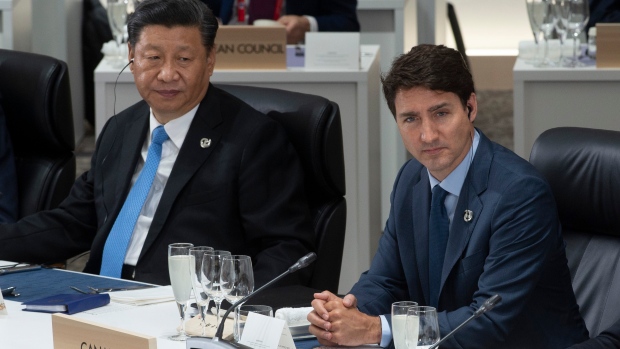Jun 21, 2024
The Daily Chase: Chinese EV tariffs coming, retail sales on track to tumble
, BNN Bloomberg

Here are five things you need to know this morning:
Canada preparing to put tariffs on Chinese EVs: Bloomberg is reporting that the federal government is preparing new tariffs on Chinese-made electric vehicles, aligning itself with recent levies implemented in the U.S. and EU. Exact details still aren’t clear but the government is expected to soon launch consultations on where to set them, according to unnamed officials who spoke to Bloomberg on condition of anonymity. In the U.S., the levy on some EVs is as much as 102 per cent, while the EU tariffs top out at 48 per cent.
Retail sales jumped in April but set to plunge again in May: Statistics Canada released new retail sales numbers this morning and while sales grew by 0.7 per cent in April, matching expectations, the data agency says preliminary data suggests they wiped out that increase in May with a 0.6 per cent decline. If May’s forecasted decline comes to pass, that means retailers will have posted a sales decline in every month except for one this year. That’s a sign of a cooling economy and stretched consumer and likely gives the Bank of Canada more leeway to cut lending rates more times this year.
Mortgage lenders link up as Nesto buys CMLS: There’s an interesting development in Canada’s mortgage industry afoot as online lender Nesto is buying up CMLS to expand its mortgage lending business into the commercial space. Privately-held Nesto currently targets digitally focused borrowers seeking alternatives to Canada’s big banks. The deal gives Nesto a foothold into commercial mortgages, a market where they are not currently a factor but CMLS has been in since its founding in the 1970s. We’ll speak to the CEO of Nesto about the rationale for the deal on The Open this morning.
Chaos continues at car dealers as CDK cyberattack stretches on: Car dealerships across the U.S. are scrambling to deal with a cyberattack at software provider CDK Global, rendering them unable to efficiently handle new orders or process any sales. While the main impact is in the U.S. with tens of thousands of dealerships idled, there’s also a Canadian impact with hundreds of dealerships in Canada relying on pen and paper to work on deals, said Tim Reuss, president of the Canadian Automobile Dealers Association. Those transactions will eventually need to be logged digitally once the systems are back online, he said. “There’s going to be a bit of a hangover from this incident,” he told Bloomberg.
Loonie looking like a decent carry trade, Morgan Stanley says: Strategist David Adams at Morgan Stanley says the Canadian dollar will become a popular choice to fund carry trades as the Bank of Canada cuts interest rates. “Despite the clearer case for faster and deeper cuts in Canada, markets aren’t pricing it,” he said in a note to clients on Thursday. “(The Canadian dollar’s) attractiveness as a funding currency should improve meaningfully,” he said. Currently the swaps market is pricing in only 50 basis points of cuts, but Adams thinks the central bank will deliver twice that, and is recommending investors sell the loonie against the pound. While Canadians tend to price the currency in relation to how many you would get for a U.S. dollar (currently just over 73 cents), international investors price it based on the inverse, where you currently need 136 Canadian cents for one greenback. Adams says that as the Bank of Canada cuts, he expects the 140 cents barrier to be broken later this year, a level that has not been touched since 2020.